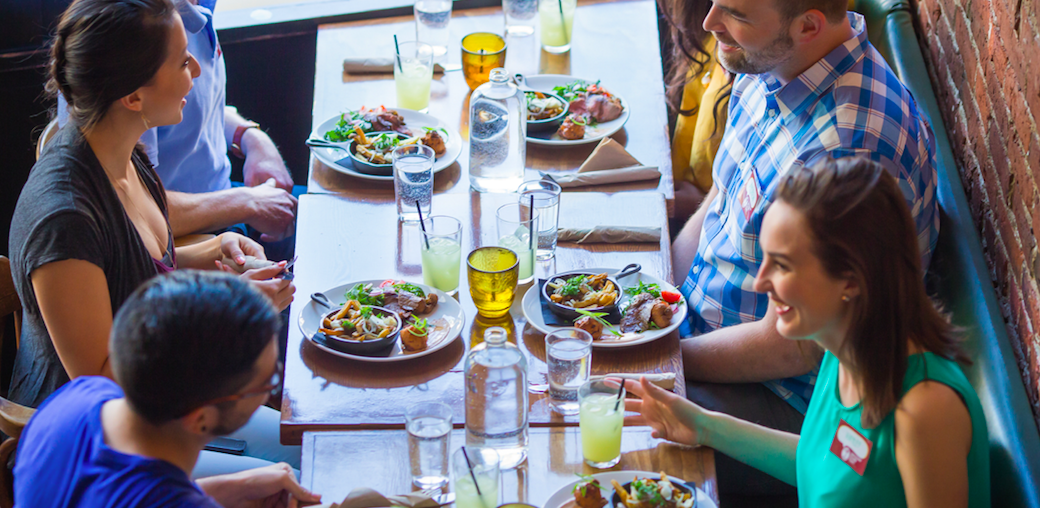Planning a visit to BC? Know what to expect from tipping etiquette in Canada to what food items are permissible to bring back with you!
What is the initiative of West Coast Food?
West Coast Food is an initiative to brand the Lower Mainland section of the Vancouver, Coast & Mountains region, as a culinary hub, and to promote the food of the various communities, from farm-to-fork, as a driver of tourism. It is made in partnership with destination marketing organizations from the communities of Vancouver, Vancouver’s North Shore (City of North Vancouver, District of North Vancouver and West Vancouver), Burnaby, Coquitlam, Surrey, and Langley City.
What is the exchange rate in Canada?
If you are visiting from the U.S., your dollar is stronger in Canada! Every $1 USD is worth approximately $1.37 CAD. For example, $30 USD can get you a fabulous meal worth $41.24 in Canadian dollars!
To convert other forms of currency into Canadian dollars, or to check today’s exchange rate, use this handy online Currency Converter.
Note: A federal goods and services tax (GST) of 5% and a provincial sales tax (PST) of 7% are applicable to most purchased goods and services.
What is the tipping etiquette in Canada?
Gratuity is usually not included in Canadian restaurants. A tip of 15-20% at bars and restaurants is customary. Tips are also given to tour guides, taxi drivers, and for spa treatments and haircuts. Porters at airports, railway stations, and hotels generally expect $1-2 per item of luggage.
How much can I bring back to the U.S. duty-free?
| Time Out of the U.S. | Exemption |
| Less than 48 hours | $200 USD worth of goods per person *You may include in the $200 exemption, 150 millilitres (5 fl. oz.) of alcoholic beverages |
| More than 48 hours | $800 USD worth of goods per person * You may include in the $800 exemption, 1 litre of alcohol |
| More than once in a 30-day period | $200 *You may include in the $200 exemption, 150 millilitres (5 fl. oz.) of alcoholic beverages |
Looking to spend more time here in beautiful British Columbia while increasing your allowance for bringing B.C. produced goodies home for friends and family? Vancouver’s Lower Mainland has an abundance of hotels available!
What food items are permitted to bring back into the U.S.?
According to the U.S. Customs and Border Protection, the following common food items are permitted for personal use:
- Olive oil and other vegetable oils
- Bread, cookies, crackers, cakes, granola bars, cereal and other baked and processed products
- Candy and chocolate
- Bakery items
- Cheese products
- Canned goods and goods in vacuum packed jars (other than those containing meat or poultry products) for your personal use
- Dried Fruit: Apricots, barberry, currants, dates, figs, gooseberries, peaches, prunes, raisins, and tomatillos
- Tea: Commercially packaged and ready to be boiled, steeped or microwaved in liquid. Coca, barberry and loose citrus leaves are prohibited
- Coffee, roasted or unroasted if there is no pulp attached
- Spices: Most dried spices are allowed except for orange, lemon, lime and other citrus leaves and seeds, lemongrass, and many vegetable and fruit seeds
- Honey: Comb honey, royal jelly, bee bread, or propolis if it is not intended to be fed to bees
- Nuts: All nuts are allowed if they have been boiled, cooked, ground, oven dried, pureed, roasted, or steamed
- Fish: Personal amounts of fish, shrimp, abalone and other seafood are allowed and can be fresh, frozen, dried, smoked, canned or cooked
Fruits and Vegetables:
- Travellers may check the general admissibility of fruits and vegetables by consulting APHIS’s FAVIR database
- Every fruit or vegetable must be declared to a CBP Agriculture Specialist or CBP Officer and must be presented for inspection, regardless of its admissibility status
- Fresh fruits and vegetables need to be clean and may be prohibited if they have insects or diseases
Alcoholic Beverages:
- Duty rates on alcoholic beverages are based on the percent of alcohol per liter in the product, not on units of packaging such as per bottle/case. Duty on wine and beer is generally low, $1-2 per liter, while fortified wines and spirits are considerably higher.
What food items are prohibited to bring back into the U.S.?
The following food items are prohibited:
- Regulations governing meat and meat products are stringent. You may not import fresh, dried or canned meats or meat products or foods that have been prepared with meat
- Cooked eggs and foods such as breakfast tacos, egg plates and hard-boiled eggs
How do I get around once in Vancouver’s Lower Mainland?
Whether you’re travelling via plane, train, boat or automobile, Vancouver’s Lower Mainland is an easy-to-reach destination. Once here, there are many options to help you easily navigate this diverse, eclectic region and experience the very best of West Coast cuisine.
Discover how to get around.


Comments are closed.